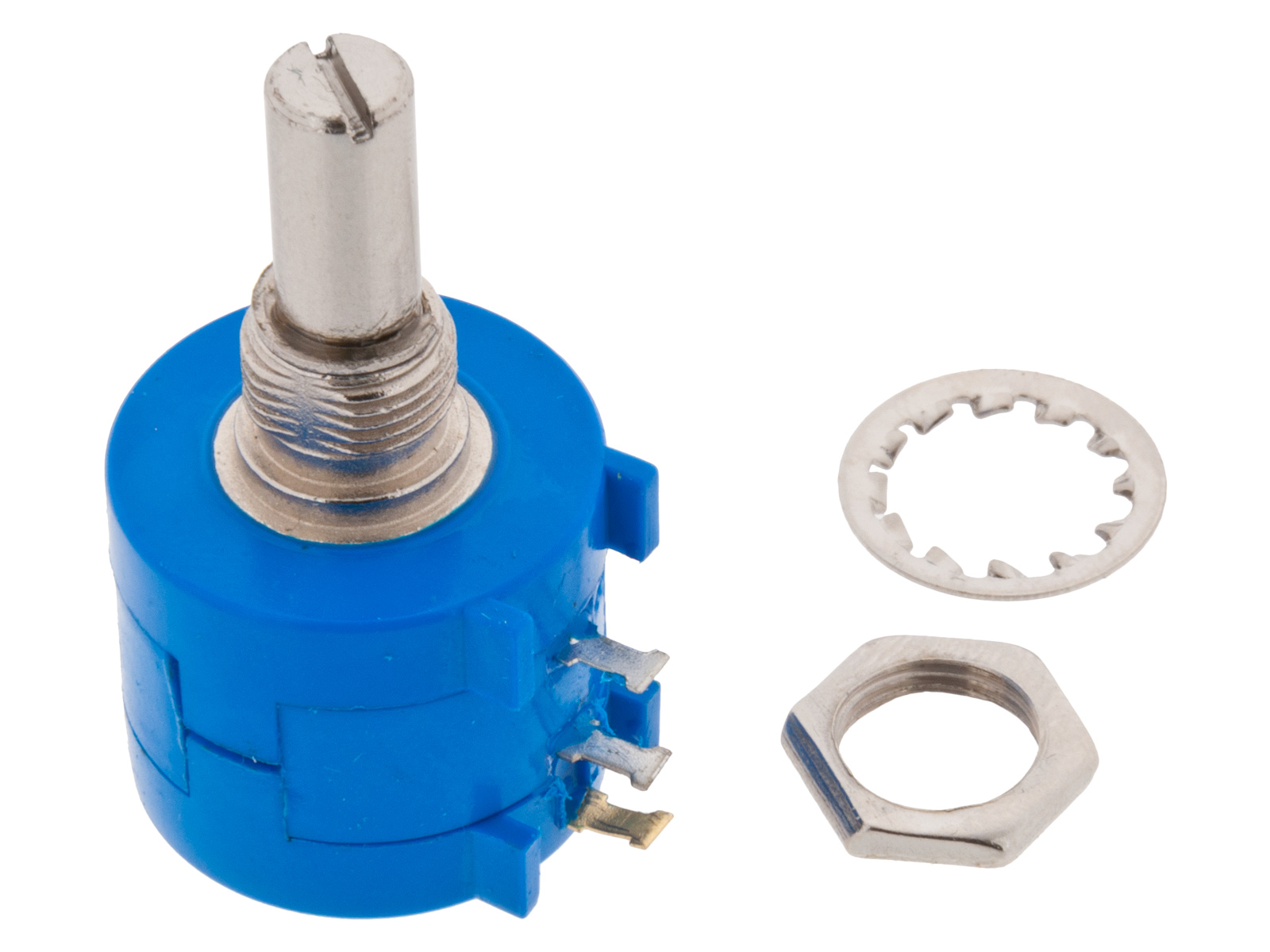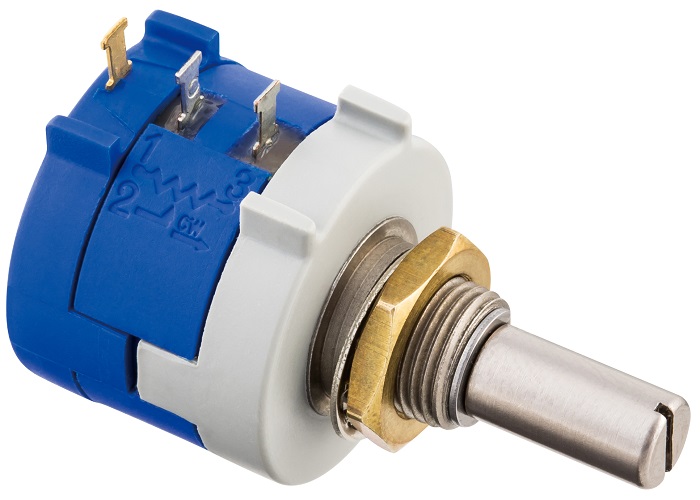Potentiometers play an important role in controlling and measuring the flow of electric current. These versatile components are found in everything from light dimmers to audio equipment. However, when precision and extended control range matter, the multi-turn potentiometer takes center stage.
Distinguished from their standard counterparts, these devices offer enhanced accuracy and durability, making them invaluable in various applications.
In this blog, let’s get into the details of multi-turn potentiometers, uncovering their unique benefits and applications.
What is a Multi-Turn Potentiometer?

A multi-turn potentiometer stands out in the realm of variable resistors. Unlike standard potentiometers, which complete their resistance range in a single turn, multi-turn potentiometers can take several turns—typically between 5 to 20 rotations—to travel from minimum to maximum resistance. This design allows for finer adjustment and greater control, making them ideal for applications where precision is paramount.
These components achieve this through a threaded shaft and a helical resistor track, ensuring smooth and consistent transitions through resistance values. Adding a multi-turn potentiometer in a circuit can drastically enhance the accuracy of the device it controls.
Advantages Over Standard Potentiometers
Improved Precision
In-Depth Explanation: The multi-turn design of these potentiometers is a game-changer in settings where precision is paramount. Unlike standard potentiometers that complete their range in a single turn, multi-turn variants offer more rotations (often ten or more). This design allows for more refined adjustments, providing control with much finer resolution.
Real-World Impact: In high-precision settings like laboratory instruments, calibration equipment, or even delicate audio mixing, this means the difference between near-accuracy and absolute precision. For instance, in a laboratory, achieving the exact resistance can significantly impact the accuracy of experimental results.
Enhanced Durability
In-Depth Explanation: Multi-turn potentiometers are designed with durability in mind. The internal mechanism is engineered to distribute wear and tear over a larger area. This starkly contrasts standard potentiometers, where repeated use can quickly lead to wear in specific spots.
Real-World Impact: For industries where equipment reliability is crucial, such as in manufacturing or aerospace, this extended lifespan means fewer replacements, reduced maintenance costs, and more consistent performance over time. It’s not just about lasting longer; it’s about maintaining consistent quality and reliability
Wider Application Range
In-Depth Explanation: The versatility of multi-turn potentiometers comes from their ability to handle finer adjustments. This makes them exceptionally suitable for applications where standard potentiometers fall short, especially in complex, high-precision industrial contexts.
Real-World Impact: In sectors like robotics, aerospace, and advanced manufacturing, the requirement for intricate control is common. Here, multi-turn potentiometers are not just beneficial; they are often essential. Their ability to fine-tune settings can make a critical difference in the performance and functionality of sophisticated machinery and systems.
Applications and Real-world Usage
Multi-turn potentiometers have found their place in various sectors, highlighting their versatility:
Industrial Applications
Used in control systems for machinery, ensuring precise adjustments in manufacturing processes.
Electronics
Common in audio equipment for volume and balance controls, offering smoother and more accurate tuning.
Unique Uses
In scientific equipment, these potentiometers allow for precise measurements and adjustments, which are important in research and development.
Choosing the Right Multi-Turn Potentiometer

Selecting the right multi-turn potentiometer involves considering factors such as resistance value, tolerance, physical size, and the total number of turns. It’s also important to decide between wire-wound and non-wire-wound types, each offering different characteristics suitable for various applications.
The Best Products We Offer
Key Takeaways
The multi-turn potentiometer is more than an incremental improvement over its standard counterpart. It’s a game-changer in scenarios where precision matters. From industrial machinery to high-end audio equipment, the multi-turn potentiometer offers a level of control that standard potentiometers simply can’t match.
As technology progresses, the importance of these components is only set to increase, making them an essential consideration for any project demanding fine control and accuracy.
Are you in search of a potentiometer that goes beyond the standard? Look no further! ETI Systems proudly presents its cutting-edge Multi-Turn Potentiometer, designed for applications where precision and durability are non-negotiable.
